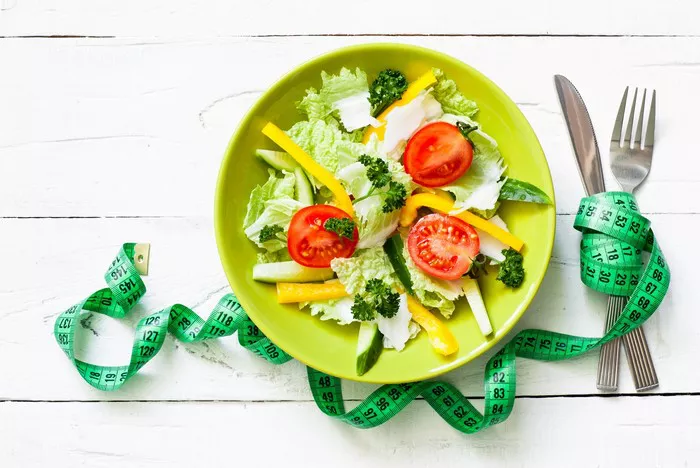Diabetes is a chronic health condition characterized by high blood sugar levels, either due to inadequate insulin production or the body’s inability to utilize insulin effectively. Proper management of diabetes is essential for preventing complications and maintaining overall well-being. Along with medication and lifestyle changes, a healthy diet plays a vital role in managing blood sugar levels. Certain foods can cause significant spikes in blood sugar, posing a risk to individuals with diabetes. In this article, we will explore the foods that people with diabetes should avoid to maintain stable blood sugar levels and improve their overall health.
Understanding Diabetes
Before delving into the dietary restrictions, let’s briefly understand the two main types of diabetes:
Type 1 Diabetes: This type occurs when the body’s immune system mistakenly attacks and destroys insulin-producing cells in the pancreas. As a result, the body is unable to produce insulin, and individuals with Type 1 diabetes need to take insulin injections to manage their blood sugar levels.
Type 2 Diabetes: In this type, the body becomes resistant to the effects of insulin, or the pancreas does not produce enough insulin to meet the body’s needs. Type 2 diabetes is more common and is often associated with lifestyle factors such as obesity, sedentary behavior, and poor dietary choices.
Foods to Avoid for Diabetics
Maintaining a balanced and diabetes-friendly diet is essential for managing blood sugar levels and preventing complications. Here are some foods that people with diabetes should avoid:
1. Sugary Beverages
Sugar-sweetened beverages, such as sodas, fruit juices, and sweetened iced teas, are packed with added sugars and offer little to no nutritional value. These beverages can cause rapid spikes in blood sugar levels due to their high glycemic index. Opt for water, herbal teas, or naturally flavored water with a splash of fresh fruit to stay hydrated without the excess sugar.
2. Refined Carbohydrates
Refined carbohydrates, such as white bread, white rice, and regular pasta, are quickly digested and can cause sharp increases in blood sugar levels. These high-glycemic foods can lead to insulin spikes and subsequent crashes, making it challenging to manage blood sugar. Instead, choose whole-grain alternatives like whole wheat bread, brown rice, and whole-grain pasta, which have a lower impact on blood sugar and offer more fiber and nutrients.
3. Sugary Snacks and Desserts
Sweets and desserts high in added sugars, such as cookies, cakes, candies, and pastries, are not suitable choices for individuals with diabetes. These treats can cause significant blood sugar fluctuations and contribute to weight gain. Instead, opt for healthier dessert options using natural sweeteners like stevia or enjoy fresh fruits in moderation.
4. Processed and Fried Foods
Processed foods, such as chips, crackers, and packaged snacks, are often high in unhealthy fats, sodium, and added sugars. These foods can negatively impact blood sugar levels and contribute to weight gain and other health issues. Additionally, fried foods like french fries and fried chicken can be laden with unhealthy fats and should be limited or avoided.
5. High-Fat Dairy Products
Full-fat dairy products, such as whole milk, cream, and regular cheese, can be high in saturated fats, which may contribute to insulin resistance and increase the risk of heart disease. Choose low-fat or fat-free dairy options to reduce saturated fat intake and support heart health.
6. Sweetened Condiments and Sauces
Condiments and sauces like ketchup, barbecue sauce, and sweet chili sauce often contain added sugars. These hidden sugars can add up quickly, leading to blood sugar spikes. Look for low-sugar or sugar-free versions of these condiments, or make your own at home using natural sweeteners.
7. Dried Fruits
While fresh fruits are generally a healthy choice for individuals with diabetes, dried fruits can be problematic. Drying fruits concentrates their natural sugars, making them higher in carbohydrates and calories per serving. This can lead to rapid increases in blood sugar levels. If you enjoy dried fruits, consume them in moderation and pair them with a source of protein or healthy fat to slow down the absorption of sugars.
8. Fruit Juices
Despite being natural, fruit juices lack the fiber found in whole fruits, and the juicing process concentrates their sugars. Drinking fruit juice can cause rapid spikes in blood sugar levels, similar to sugary beverages. It’s better to consume whole fruits, as they contain fiber that helps regulate blood sugar and provides additional health benefits.
9. High-Sodium Foods
Foods high in sodium, such as canned soups, processed meats, and salty snacks, can contribute to high blood pressure and cardiovascular issues, which can be particularly concerning for individuals with diabetes. Opt for low-sodium alternatives or prepare homemade versions of these foods to control the salt content.
10. Alcohol
Alcohol can affect blood sugar levels and interfere with diabetes medication. It is essential for individuals with diabetes to consume alcohol in moderation, and always do so with food to help prevent hypoglycemia. Additionally, some medications may interact with alcohol, so it’s crucial to discuss alcohol consumption with a healthcare provider.
11. Sugary Breakfast Cereals
Many breakfast cereals marketed as healthy options can be high in added sugars. These cereals can cause blood sugar spikes, especially in the morning when insulin sensitivity tends to be lower. Choose whole-grain, low-sugar cereals, or better yet, opt for oatmeal or unsweetened yogurt with fresh fruit and nuts for a balanced and diabetes-friendly breakfast.
12. High-Fat Meats
Fatty cuts of red meat, processed meats, and organ meats can be high in saturated fats and unhealthy cholesterol. These fats can contribute to insulin resistance and increase the risk of heart disease. Choose lean sources of protein like skinless poultry, fish, tofu, or legumes for healthier meal options.
Conclusion
A healthy diet is an essential aspect of managing diabetes and maintaining stable blood sugar levels. Avoiding foods that cause rapid spikes in blood sugar, such as sugary beverages, refined carbohydrates, sugary snacks, and high-fat foods, is crucial for preventing complications and supporting overall well-being. Instead, focus on a balanced diet rich in whole foods, including fruits, vegetables, whole grains, lean proteins, and healthy fats. Always work with a healthcare provider or a registered dietitian to create a personalized meal plan that meets your specific needs and helps you manage diabetes effectively. By making smart food choices and adopting a healthy lifestyle, individuals with diabetes can take control of their health and improve their quality of life.























